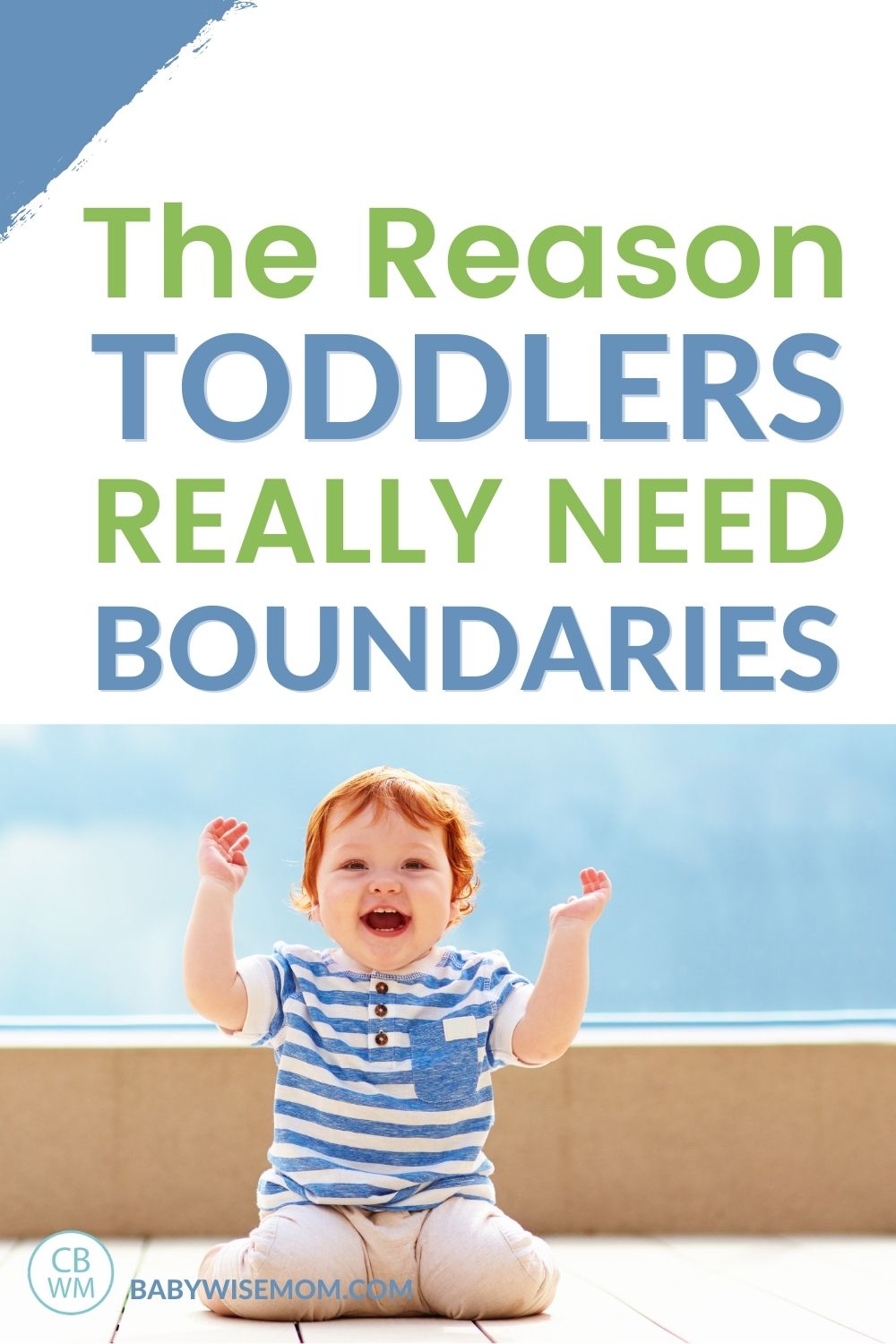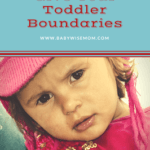Toddlers do not want boundaries, but they need them! How to help your child learn what is okay and what isn’t okay, and why you want to do so.

Toddlers need boundaries.
That doesn’t mean toddlers want boundaries.
Your toddler will not thank you for placing a boundary in her life. At least not verbally. She will likely start with some resistance.
Over time, she will thank you with her attitude and disposition.
This post discusses the need for boundaries and illustrates why you should give boundaries and how to accurately give your child real boundaries.
Post Contents
Boundaries Are Good
As our little babies move into toddlerhood, it is important as parents to accept the need for boundaries.
Boundaries can have a negative connotations, but in reality, boundaries are not bad.
Boundaries show us our limits. They let us know how far we can go. They in effect give us freedom.
Every act has a consequence, and the boundaries help protect us from consequences or reward us with consequences, depending on the action.
We All Have Rules to Follow
When I think of boundaries, it takes me to our ability to make choices. As humans we all possess the capacity to choose what we will and will not do.
This ability should be used responsibly, however, because we are always free to choose our actions, but not always free to choose the consequences of those actions.
For example, we have laws of the land to obey; if I choose to speed in my vehicle, I must accept responsibility when I get caught for speeding.
The best-case scenario for speeding would be a ticket from a policeman. A worst-case would be taking the life of another as a direct result of my speeding.
Free will represents the human capacity to choose, while wisdom reflects our judgment in choice. Our children are born with the first but must be taught the second.
There are also moral laws and family laws to obey.
With family laws, you have rules in place for your family.
Perhaps there are certain words or actions you don’t allow to be said and done in your family. Life is full of boundaries, but we arrive at those boundaries, and test those boundaries, through our free will.
Through these tests we can learn the benefits of respecting our boundaries and the negative effects of pushing, or disobeying, those boundaries.
What are the implications of free will and boundaries for parents? This article discusses the essence of what free will is when it comes to parental instruction and training with toddlers and preschoolers. In part two, I will to speak to the value of boundaries in the life of children.
Free Will and Boundaries
First, what is the relationship between free will and boundaries? Here is an illustration that I have found helpful.
I put before you three pieces of paper, each with a different picture on it (what the picture is of doesn’t matter).
I then tell you to pick one, so you do. After you have chosen a picture, I deliver a consequence for your choice.
Did I really provide you the freedom of choice? No, not really because I withheld from you pertinent facts required for you to make an informed decision. You didn’t have a full understanding as it related to your choices.
Now, let’s say I put before you three pieces of paper each with the same picture on it. Again, you are not able to practice free will in decision-making because your choices are all the same.
For a third time I place the three different pictures in front of you, but this time, I explain that each picture has with it a different consequence.
One is positive, one is negative, and one is neutral, but I don’t tell you which is which.
Again, this is not allowing for your free will to operate fully because I am still withholding some facts. You do not have the full knowledge necessary to make a wise decision.
Finally, I put before you the three different pictures and tell you the first one will earn for you a piece of candy. The second one will cause you to lose a piece of candy. The third will do nothing. I then ask you to choose one.
Now free will is operating within the confine of established boundaries.
You know your choices and the consequences that will follow. The boundaries now have meaning beyond simply a limitation.
Related it to Parenting
How do these examples relate to child training?
Our children, like us, possess this freedom to choose.
All day long, they are making choices.
As parents, our goal is to help instill within our children a sustaining wisdom that will help them make good choices for themselves and those around them, now and in the future.
To achieve this, we must make sure that our instruction and council present the element of reward for wise decisions and the consequences for foolish decisions. In this way we become partners with their free will as we help mentor our children in wise decision-making habits. My next article on this topic will give examples on how to put this idea into practice.
Related Posts
- Why You Can Give Your Baby Rules and Boundaries
- How to Set Boundaries
- How to Teach a Child How to Make Decisions


